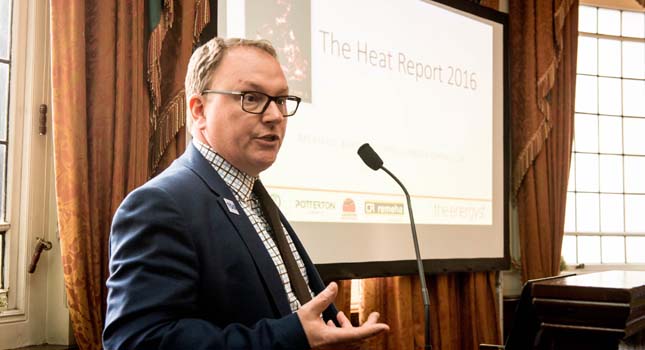

The demand for hybrid heating solutions is on the rise, as two thirds (66%) of heating professionals seek a way to respond to the heating and hot water needs of increasingly vast and varied property portfolios, according to an industry poll.
Commissioned by Baxi Heating’s commercial brands – Andrews Water Heaters, Potterton Commercial, SenerTec and Remeha – the poll highlights a strong commitment to investing in hybrid systems, which are seen as a good medium-term approach to decarbonisation.
More than a third (37%) of respondents said they were considering a hybrid system, while just under a third (29%) said they had already taken the plunge.
Hybrid systems bring together a number of heating and hot water solutions in order to get the best out of different technologies, with the overall aim of reducing carbon emissions while providing a reliable source of heating and hot water.
Respondents, which included heating engineers, specifiers and end users, identified that hybrids offer more flexible system integration and lower risks, although they also recognised that some technologies were not yet cost competitive.
When asked what manufacturers could do to encourage the take up of multi-technology systems, nearly two thirds (62%) said that cost was key, whether that be in terms of the upfront investment or that evidenced via a whole life approach.
Almost a quarter (23%) said that there was a need for better marketing from technology providers to raise awareness of the benefits, while less than a fifth (15%) thought that providers should focus on control strategies as a way to promote greater uptake.
The survey was part of an industry report designed to uncover changing attitudes towards the decarbonisation of heat and the underlying heat strategies implemented by building owners.
Andrew Keating, marketing director UK and Ireland for Baxi Heating, said: “The findings in our poll demonstrate a huge appetite for hybrid systems, which are really taking centre stage in the decarbonisation debate.
“It’s a trend that makes a great deal of sense, given that multi-technology solutions offer improved reliability through built-in redundancy, maximise overall seasonal efficiency, and are a practical, affordable route to upgrading existing heating systems in order to lower the overall carbon footprint.
“Overall our report highlights a significant opportunity for forward-thinking manufacturers in the shape of ongoing investment into the research and development of low carbon technologies, and working alongside government in helping to design legislation that can support the future of our industry.”
The report is available to download from www.andrewswaterheaters.co.uk.
If you'd like to keep up-to-date with the latest developments in the heating and plumbing industry, why not subscribe to our weekly newsletters? Just click the button below and you can ensure all the latest industry news and new product information lands in your inbox every week.